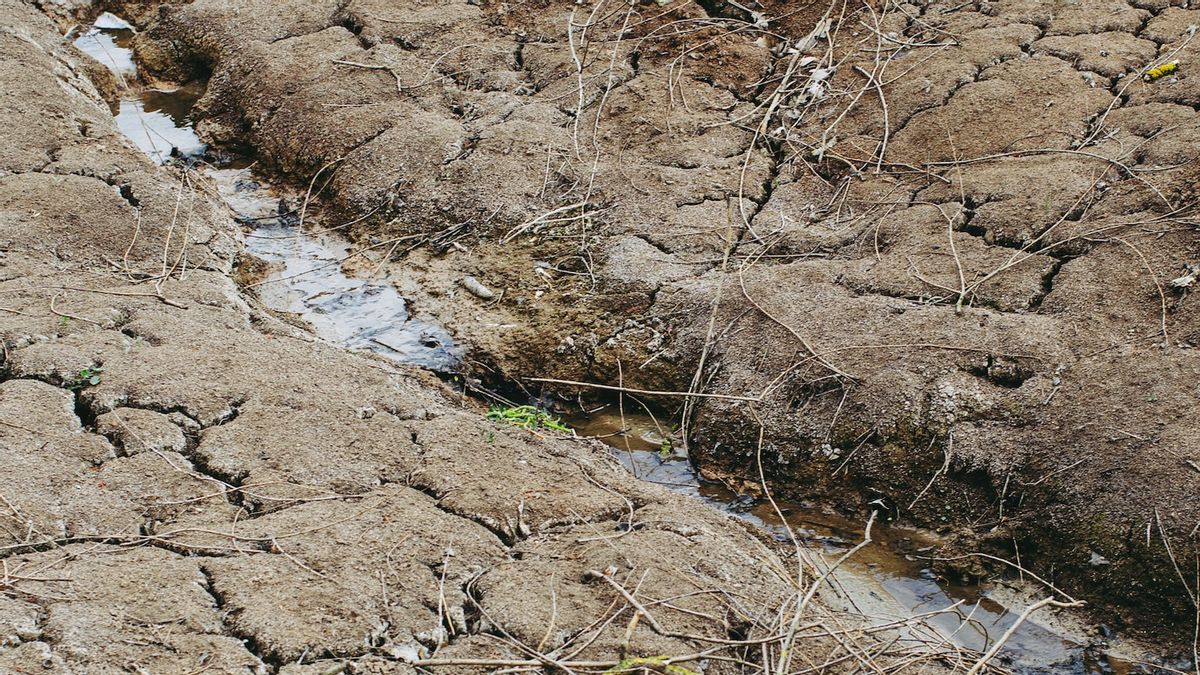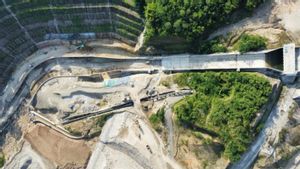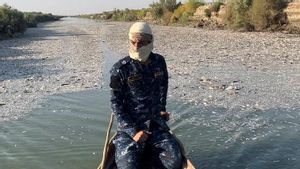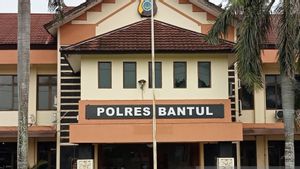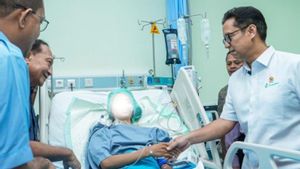JAKARTA - DPR Speaker Puan Maharani reminded the importance of supporting infrastructure for residents in the dry season which causes drought in a number of areas. Residents' need for clean water supply is non-negotiable.
"The maximum effort must be made to overcome the shortage of clean water in a number of areas because water is the basic need for the community," said Puan, Wednesday (12/7/2023).
Puan highlighted the difficulties of residents in the Anambas Islands, Riau Islands (Kepri), who had difficulty getting clean water supplies due to reservoirs and drying rivers. The impact of drought was felt by Anambas residents who live on 26 small islands.
The drought that has occurred over the past month has forced residents to get water every two days. Puan reminded that the lack of clean water can also have an impact on public health.
"Illness can arise due to lack of clean water, this must be handled as soon as possible so as not to add to the burden on the residents," said the first woman who served as Chair of the DPR RI.
To note, drought in Anambas occurs due to the decreasing impact of rainfall. As a result, as many as 40,000 households were affected by limited clean water. Currently, people in Anambas are only waiting for assistance in the supply of clean water from the local government because the rain has not decreased.
Meanwhile, residents on the Anambas islands have been hanging on a supply of clean water from reservoirs and a number of natural sources of water such as rivers. However, because of the rare rain, reservoirs and rivers dried up.
Puan asked the Government to build infrastructure with more sophisticated technology. Considering that in Anambas there is no groundwater source so that wells cannot be made. The clean water crisis is known to occur every year.
"The DPR hopes that the Government's commitment to support community unity through infrastructure, especially those in the regions. Artificial reservoirs must be further reproduced so that this chronic problem can immediately get a solution," said Puan.
"Of course this is also the homework of the Regional Government because the issue of clean water quality is very important to ensure the sustainability of human life and the environment around it," he added.
Apart from the Anambas Islands, limited clean water due to decreased rainfall is also experienced by people in Bogor Regency, West Java and Central Lombok Regency, East Nusa Tenggara (NTT).
另请阅读:
For this reason, Puan emphasized the importance of collaboration between the central and regional governments in overcoming the problem of clean water due to the dry season which causes drought. She reminded that the Government's policies related to water should be based on the interests of the people in accordance with the mandate of the 1945 Constitution.
"If the central government and the regions can carry out maximum coordination and cooperation, then efforts to overcome the provision of clean water can be effective," said Puan.
On the other hand, drought is not the only cause of people experiencing clean water difficulties. Like in Batam, Riau Islands, where people have difficulty with clean water because of non-principal services from the Batam Drinking Water Supply System (SPAM).
The former Coordinating Minister for Human Development and Culture asked the local government to give maximum supervision considering that residents can only get clean water in the middle of the night because supplies during the day are stopped. Puan emphasized that water management must be beneficial for the community.
"Management of water resources in Indonesia is facing very complex problems because residents often complain about clean water services," said Puan.
In addition to drought and non-principal services, another cause of limited clean water is the large amount of water that cannot be managed into hygienic. For example, what happened in DKI Jakarta where only 39 percent of the capital residents received piped clean water services.
According to the Central Statistics Agency (BPS), the cause of the problem of low clean water sources in Jakarta is because only 2 rivers provide clean water sources, namely the Cengkareng River and Krukut River. In fact, until now, there are a total of 13 rivers in Jakarta.
"The government needs to have a water management system that is useful for the survival of its people. Such as having a breakthrough on how to manage river water into hygienic clean water so that it can be used for daily needs by the community," said Puan.
Furthermore, Puan reminded that limited availability of clean water has had a negative impact on daily health, environment, and life.
"Because the supply of clean water is limited, many people are often forced to rely on unhygienic water sources, this results in an increased risk of infectious diseases," explained Puan.
The English, Chinese, Japanese, Arabic, and French versions are automatically generated by the AI. So there may still be inaccuracies in translating, please always see Indonesian as our main language. (system supported by DigitalSiber.id)
